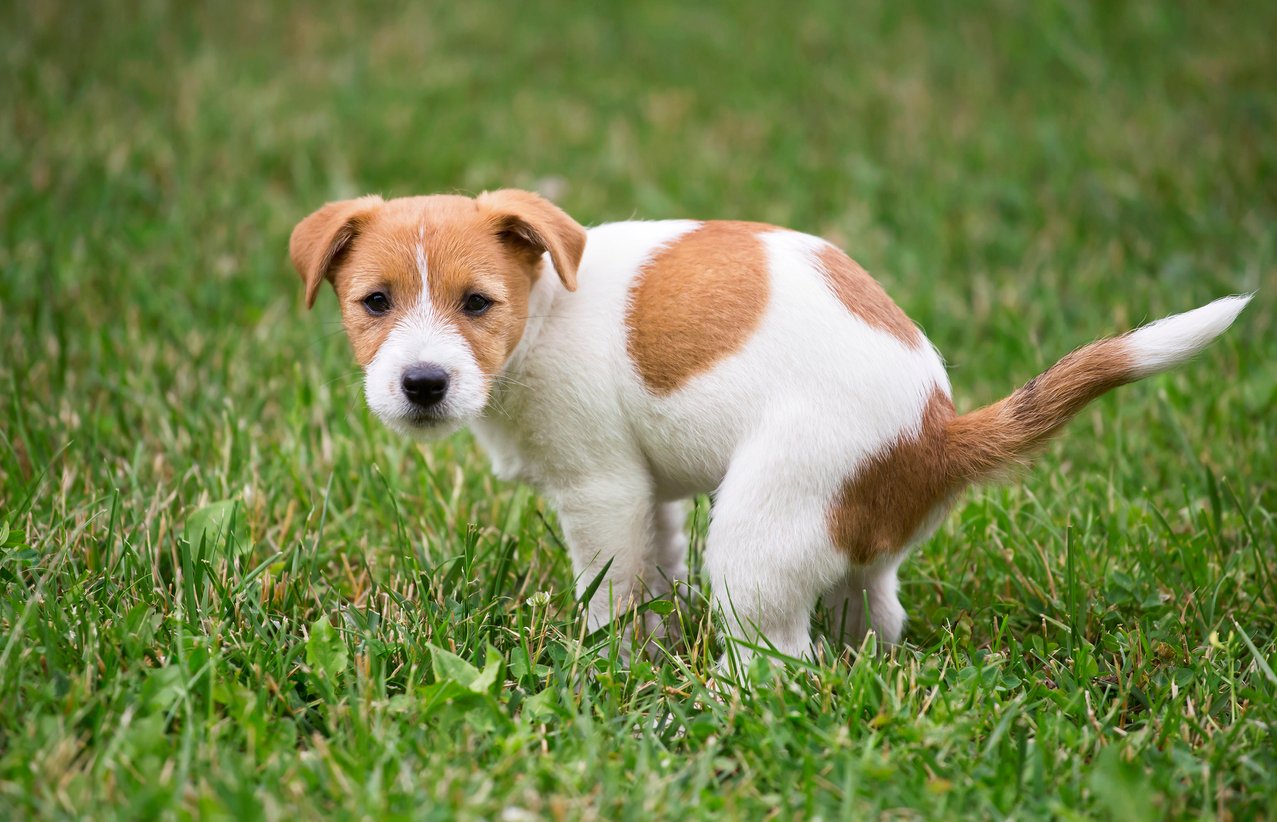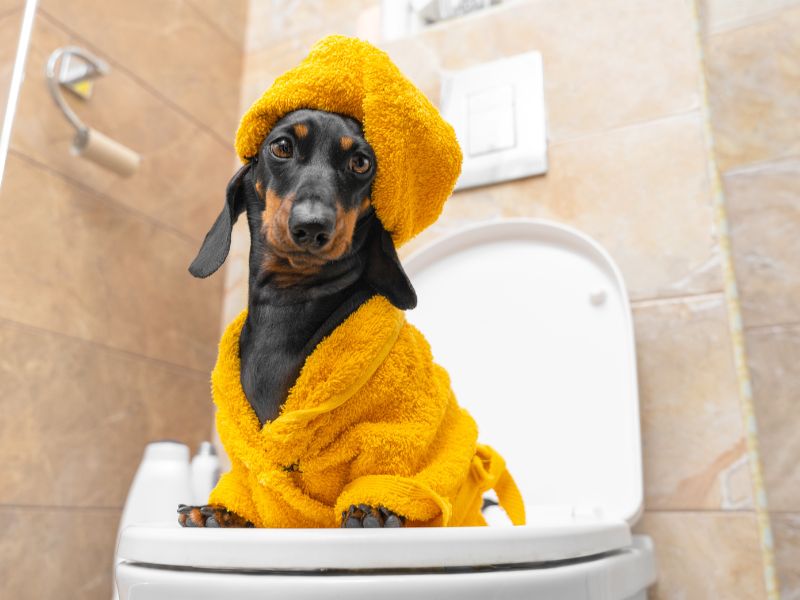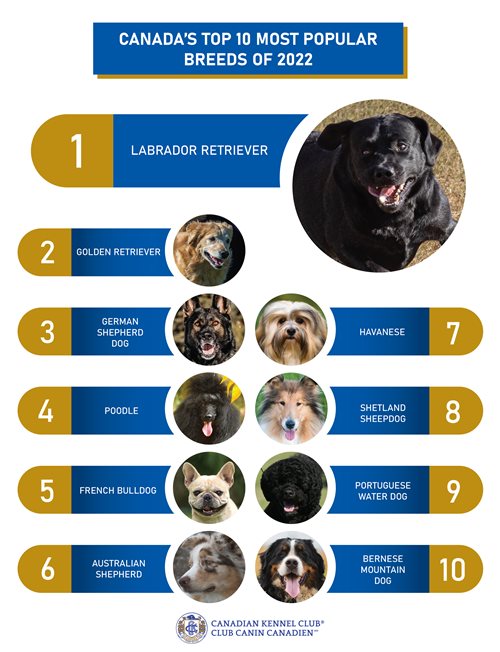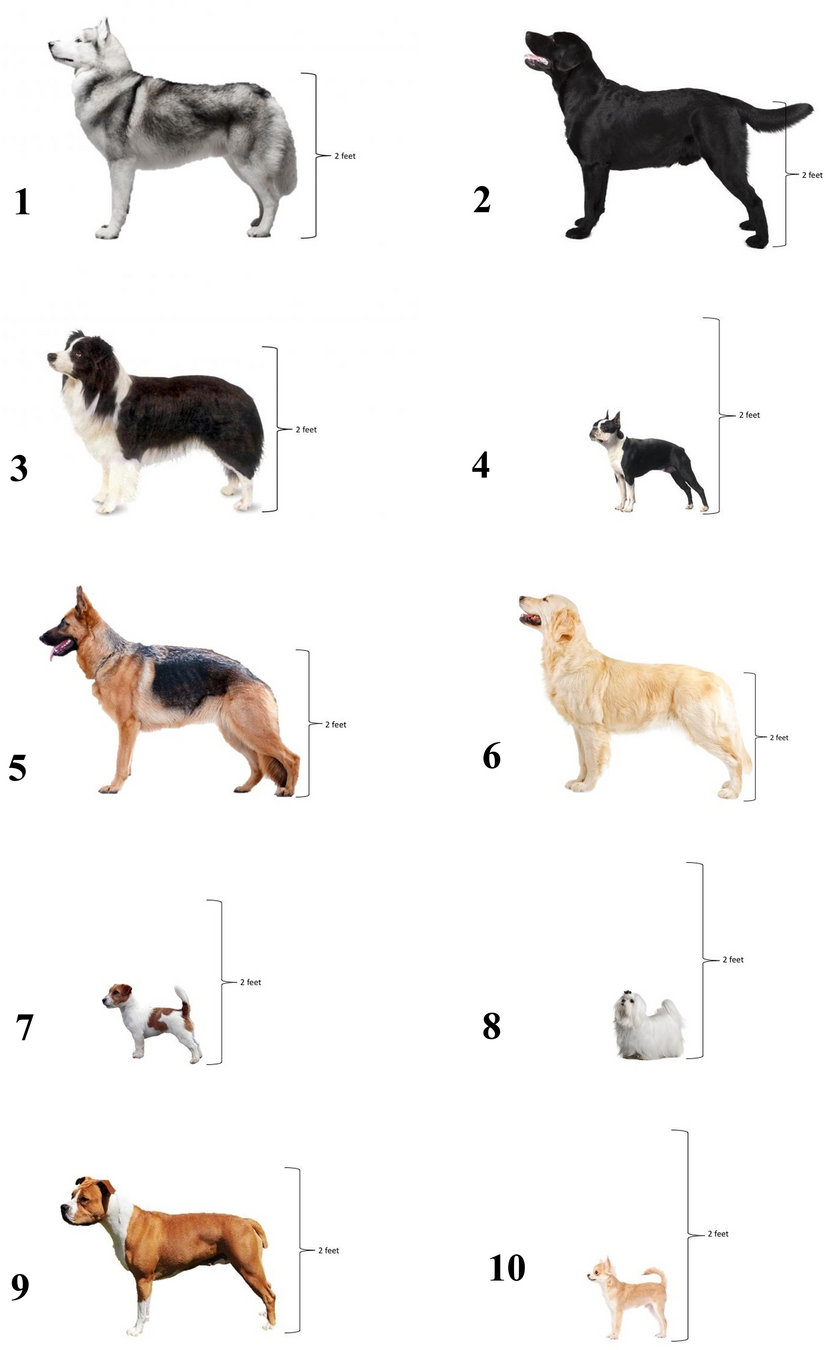Dogs can hold their poop for an average of 8 to 10 hours. Properly understanding a dog’s bowel movements is essential for their overall health and well-being.
Just like humans, dogs have a natural urge to relieve themselves, and holding poop for an extended period can lead to discomfort or potential health issues. The duration a dog can hold its poop depends on various factors such as age, diet, size, and overall health.
Puppies and small breeds may have a smaller bladder capacity and need more frequent potty breaks. Additionally, high-fiber diets can promote regular bowel movements and facilitate better poop control. In contrast, underlying health problems like diarrhea or constipation can affect a dog‘s ability to hold their poop for an extended period of time. Dog owners must be observant of their pet’s bathroom habits to ensure they can promptly meet their needs.

Factors Influencing How Long Dogs Hold Their Poop
Diet, exercise, stress levels, and overall health can impact how long dogs retain their waste. Understanding these influences can help pet owners gauge their dog’s bowel movements and promote good digestive health.
Factors influencing how long dogs hold their poop can vary depending on various aspects. Size and breed, diet, and digestion, as well as health and medical conditions, are among the key factors that can affect how long dogs hold their poop.
Size and breed can significantly impact a dog’s bowel movements. Smaller breeds, like Chihuahuas, tend to have a quicker digestion process than larger breeds, such as Great Danes. This means that they often need to relieve themselves more frequently.
A dog’s diet and digestion also play a vital role in how long they can hold their poop. A high-fiber diet, for instance, can result in more frequent bowel movements, as fiber promotes regularity. On the other hand, a low-fiber diet can slow down the digestive process, causing dogs to hold their poop for extended periods of time.
Health and medical conditions can further affect a dog’s bowel movements. Certain medical conditions, like gastrointestinal infections or inflammatory bowel disease, may result in diarrhea or an increased urgency to defecate. In such cases, dogs may not be able to hold their poop for as long as they usually would.
Similarly, some health issues can cause constipation, making it difficult for dogs to pass stool. This can lead to more extended periods of holding their poop. Certain medications, such as pain relievers or antibiotics, may also impact a dog’s bowel movements.
In conclusion, several factors can influence how long dogs hold their poop. Size and breed, diet and digestion, and health and medical conditions all contribute to a dog’s ability to control or pass stool. Understanding these factors can help dog owners better manage their pet’s bowel movements and ensure their overall well-being.

Behavioral Factors Affecting How Long Dogs Hold Their Poop
When it comes to how long dogs hold their poop, several behavioral factors can play a significant role. Understanding these factors is crucial for dog owners to maintain their pet’s digestive health and overall well-being. In this article, we will explore three essential aspects that can influence how long dogs can hold their poop: training and owner influence, environment and routine, and anxiety and stress.
Training And Owner Influence
Training plays a vital role in a dog’s ability to control their bowel movements. Dogs that have undergone proper potty training are generally more capable of holding their poop for more extended periods. Additionally, the owners’ influence in reinforcing good behavior can significantly impact a dog’s ability to control their urge to relieve themselves. Consistent and positive reinforcement techniques, such as praise and rewards, can encourage dogs to hold their poop until an appropriate time and place.
Environment And Routine
The environment in which a dog spends its time and daily routine can also affect its bowel movements. Dogs thrive on consistency and exercise, so establishing a regular schedule for feeding and outdoor bathroom breaks is essential. When dogs have a predictable routine, they are more likely to hold their poop until they are taken outside. An inconsistent schedule or changes in their environment can disrupt their routine and potentially cause accidents.
Anxiety And Stress
Just like humans, dogs can experience anxiety and stress, which can impact their bowel habits. When dogs feel anxious or stressed, it can affect their digestive system and the frequency at which they need to poop. Stressful situations, such as loud noises, unfamiliar surroundings, or separation from their owners, can lead to an increased urgency to relieve themselves. As responsible pet owners, creating a calm and comforting environment for our dogs to reduce their anxiety levels and promote regular bowel movements is crucial.
Signs Of Discomfort And Solutions For Dogs Holding Their Poop
As a responsible dog owner, being observant and proactive regarding your pet’s bathroom habits is essential. When dogs hold their poop for too long, it can lead to serious health issues such as constipation or even impacted bowels. To ensure your furry friend’s well-being, it’s crucial to recognize the signs of discomfort and take appropriate action. In this article, we will discuss common signs of pain and provide you with tips to help your dog poop regularly.
Common Signs Of Discomfort
If you notice any of the following signs, it may indicate that your dog is experiencing discomfort and is holding their poop:
- Restlessness or pacing
- Frequent attempts to defecate without success
- Straining during bowel movements
- Loss of appetite or decreased appetite
- A bloated or distended abdomen
If you observe any of these signs, you must take immediate action to help your dog relieve their discomfort. Ignoring these signs can severely affect your pet’s overall health and well-being.
Tips To Help Your Dog Poop Regularly
You can employ several simple yet effective strategies to ensure your dog maintains regular bowel movements. By implementing these tips, you can help your furry companion avoid the discomfort of holding their poop:
- Increase exercise: Regular physical activity helps stimulate the digestive system, making it easier for your dog to have regular bowel movements. Engage in daily walks or play sessions to keep your pet active and promote healthy digestion.
- Provide a balanced diet: Feeding your dog a fiber-rich diet can help prevent constipation and promote regular bowel movements. Consult with your veterinarian to ensure you provide the appropriate diet for your dog’s needs.
- Offer plenty of fresh water. Staying hydrated is crucial for maintaining healthy bowel movements. Ensure your dog has access to clean, fresh water at all times. Dehydration can contribute to constipation and other gastrointestinal issues.
- Establish a consistent bathroom routine: Dogs thrive on routine, so establishing a regular bathroom routine can help regulate their bowel movements. Take your dog out for potty breaks at the exact times each day, ideally after meals or upon waking in the morning.
- Consider natural remedies: Some natural remedies, such as adding pumpkin puree or probiotics to your dog’s diet, can help regulate their digestive system. Always consult your veterinarian before introducing new supplements or remedies to your dog’s routine.
- Avoid stress: Dogs, just like humans, can experience stress, which can affect their bowel movements. Minimize stressors in your dog’s environment and create a calm and comfortable space for them to relax.
By following these tips, you can promote healthy bowel movements and prevent your dog from experiencing discomfort due to holding their poop. Remember to observe your dog’s behavior closely and seek veterinary advice if you notice any persistent signs of discomfort or irregular bowel movements.

Frequently Asked Questions Of How Long Do Dogs Hold Their Poop?
How Long Can Dogs Hold Their Poop Before Having To Go?
Dogs can typically hold their poop for about 6 to 8 hours. However, this can vary depending on age, size, diet, and overall health. It’s essential to provide regular bathroom breaks to prevent discomfort or accidents.
What Happens If A Dog Holds Their Poop For Too Long?
If a dog holds their poop for too long, it can lead to constipation, discomfort, and, in severe cases, even bowel blockage. This can be harmful to their health and may require veterinary intervention. Establishing a regular bathroom routine for your dog’s well-being is best.
How Often Should I Walk My Dog To Avoid Poop Accidents?
To avoid poop accidents, it’s recommended to walk your dog at least three times a day. Regular exercise and bathroom breaks will help regulate their bowel movements and prevent them from having to hold their poop for too long.
Can A Dog’s Diet Affect How Long They Can Hold Their Poop?
Yes, a dog’s diet can affect how long they can hold their poop. A high-fiber diet can promote regular bowel movements, while a diet lacking in fiber may lead to constipation. Please consult your vet to ensure your dog’s diet is balanced and suitable for their digestive health.
Conclusion
To sum it up, understanding how long
Remember, each dog is unique, and factors like age, size, and overall health can impact their bathroom habits. So, observe your dog’s behavior, provide proper training, and prioritize their bodily needs. Happy pet parenting!



